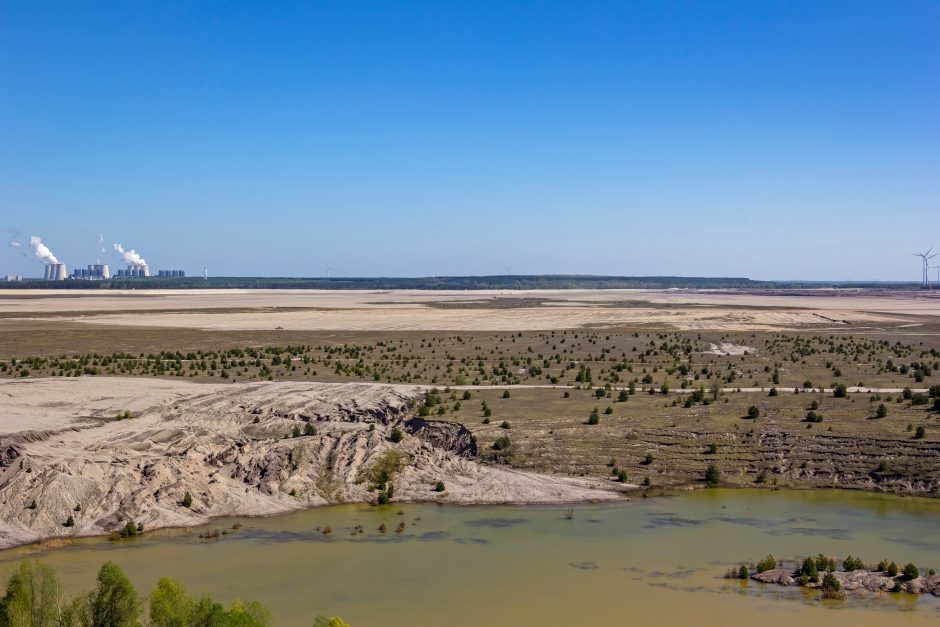Moving beyond ‘brown coal’ in Europe’s rural regions

Together with Partners, Climate KIC is leading a process aimed at supporting stakeholders in three European lignite regions transition from high economic dependence on lignite to a low-carbon future. Lignite is considered the lowest rank of coal, or ‘brown coal’. It is one of the most polluting forms of coal because its lower density means more needs to be burned to produce a unit of power.
The “Reboost – a Boost for Rural Lignite Regions” initiative, involving Lusatia in Germany, Eastern Wielkopolska region in Poland and Gorj in Romania, intends to engage and empower local actors to develop resilient and robust sustainable development strategies as part of the European Green Deal Investment Plan and the Just Transition Mechanism.
The brown coal market is still significant in Europe. The mining of lignite is quantitatively much larger than that of hard coal, as much more coal is needed to produce the same amount of energy. 244 million tonnes of it was mined in Europe in 2020, most of it in Germany, which is the main producer. In 2018, 9 % of the total gross electricity generation in the EU was based on lignite, equivalent to about 292 000 GWh. Furthermore, Germany accounted for 45 % of all lignite produced in the EU.
A just transition
In 2020, the Reboost project brought together partners related to lignite-dependent regions, such as Potsdam Institute for Climate Impact Research, Centre for Systems Solutions, Brandenburg University of Technology Cottbus-Senftenberg, Timis Chamber of Commerce, Industry and Agriculture (CCIAT), E3G Germany, Bankwatch Romania and Instytut Zielonej Przyszłości. Lusatia in Germany, Eastern Wielkopolska in Poland, and Gorj in Romania have some common features that hinder the transformation process, including economic slowdown, ageing populations, a lack of employment opportunities, and weak cooperation among stakeholders. The project is structured around three themes that focus on different aspects of regional transformations: developing a mutual understanding of regional ecosystems, understanding the barriers to shifting away from brown coal and identifying ways to overcome them, and developing new economic opportunities with the regions.
“Through working with coal regions across Europe, Climate KIC develops the most effective approaches to support the Just Transition. By engaging local change leaders, communities and building connections between coal regions, we create the competence and give empowerment needed for an inevitable transformation. One of the main blockages we identified when exploring lignite regions in the EU is the lack of dialogue, cooperation and effective ways to learn from each other. The aim of this project is to facilitate dialogue between regions at different stages of the transition.” – Joanna Sabat, Reboost leading Developer, Ecosystems Development, Demand Generation and National Systems Transformation CEE, Climate KIC.
Tools and workshops
The initiative explores the political, socio-economic and geographic characteristics of the regions through a variety of tools.
One of the most important is the strategic simulation technique to help engage local stakeholders in designing and exploring alternative development paths. The initiative also promotes reskilling and stakeholder coalition building for regional transformation and explores the possibilities of implementing any promising future development options discovered.
Recently, the project held a series of strategic simulation workshops with local stakeholders to engage them in the regional dialogue on the current situation. The workshops aimed to develop and discuss the future shape of the regions and pathways towards transformation. Participants had the opportunity to generate and test transition strategies to new energy sources, experience and understand the complexity of a systemic approach, learn how to foster and integrate both technological and social energy innovations, and share their experiences.
Complementary approaches such as deep listening methods and economic evaluation techniques are used to assess the alternatives to lignite-fired power generation and the impact on the local economy and labour market and to fully explore the priorities of different stakeholder groups.
The Reboost project also explores the opportunities for increased engagement in EU policy processes and funding opportunities.
Online games and the culture train
In addition, the Centre for Systems Solutions (CRS), together with project partners is preparing an online social simulation game, planned to be applicable to any region struggling with the energy transition. The aim of the game is to support the dialogue of local actors. Players will explore an interactive environment resembling the main socio-economic and geographical characteristics of the actual regions. The results of the simulations will be shared to stimulate mutual learning and innovation diffusion across the three regions. At the end of the project, CRS will develop a multiplayer online game for dissemination purposes.
To increase the outreach of the project, the partners are planning a series of events this summer, such as Open-Air Climate Talks and presentations at Deutsche Bahn Culture Train, scheduled on 21-22.08.2021. On the way from Berlin to Wroclaw and back, presentations on the project goals and interactive exercises with passengers on the future development of Lusatia are planned.
Learn more and buy tickets here
